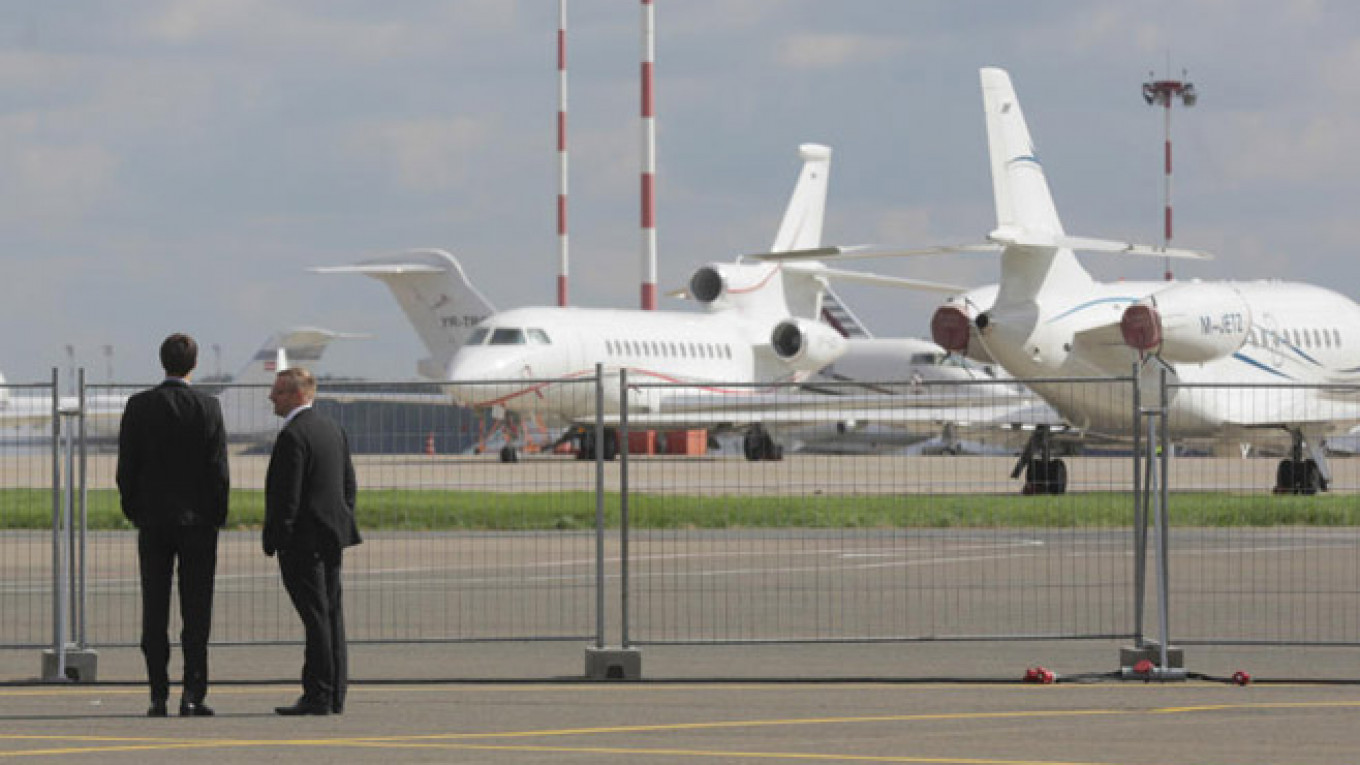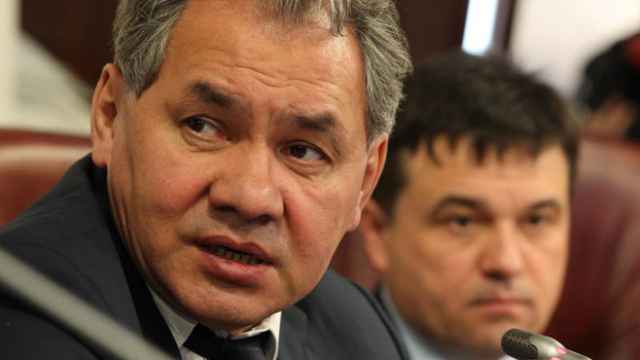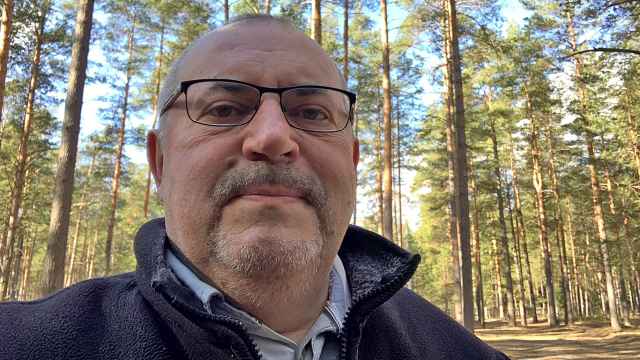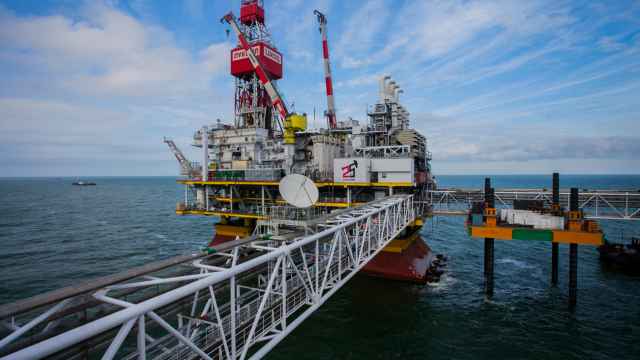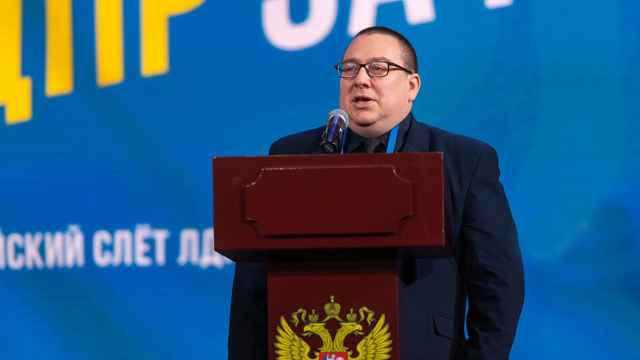A leadership shuffle at Russia's United Aircraft Corporation (UAC) has paved the way for greater domination of the defense industry by another state-owned corporation, Rostec, and given its Kremlin-connected CEO greater control than ever before.
Industry and Trade Minister Denis Manturov told the TASS news agency on Tuesday evening that UAC President Mikhail Pogosyan — formerly head of the legendary Sukhoi and MiG airplane-makers — will be replaced by Deputy Industry and Trade Minister Yury Slyusar as early as Friday.
Slyusar, a veteran of the aviation industry, will take the newly created post of UAC's CEO. Pogosyan had occupied the company's sole executive position as president, and he will stay on with the company as its general designer.
Analysts told The Moscow Times that the placement of Slyusar at the head of UAC signifies an expansion of another powerful state-owned corporation, Rostec, which is led by a close ally of President Vladimir Putin, Viktor Chemezov. Chemezov was Putin's mentor during their KGB spy careers in East Germany in the 1980s.
Both Slyusar and Manturov are said to have close ties with Chemezov, who has been working to expand Rostec's holdings in the defense industry — which already amount to nearly two-thirds of the sector, not including firms working in the space or nuclear industries.
A source close to the defense industry told The Moscow Times that Pogosyan's fate is the result of his failures as a political actor. Other industry leaders have been able to defend themselves against the advances of Chemezov's clan.
"Pogosyan was always a good engineer and a decent manager, but he was not good at public and government relations. He was known to be snobbish and not a team player, thinking he was the only real engineer. So many people didn't like him, and when the critical moment came and decisions were being made, no one stood up on his behalf," the source said.
This line of thinking is supported by reports in the Russian media citing unidentified sources as saying that Slyusar's primary objective as the CEO of UAC — an industry-spanning conglomerate and Russia's largest aircraft manufacturer — will be to facilitate its integration under Rostec's holdings.
Given Rostec's unrivaled control over the defense industry, analysts characterized Chemezov as Russia's "de-facto shadow defense industry minister."
Bulldogs Under the Rug
Ruslan Pukhov, director of the Moscow-based Center for the Analysis of Strategies and Technologies, a defense think tank, told The Moscow Times that he sees the leadership shuffle as the result of ongoing clan fighting within the defense industry, "especially in the context of the shrinking federal budget."
"The state has less money, and UAC is a nice, tasty piece of the pie," Pukhov said, adding that there are always members of the clans that are eager to head state-run corporations and preside over their cash flows.
But these cash flows are shrinking as Western sanctions and falling oil prices propel Russia toward a deep rescission. Finance Minister Anton Siluanov said Wednesday that the defense budget would be the only item of federal spending to avoid 10 percent expenditure cuts this year — leaving defense firms like UAC all the more valuable.
Aviation analyst Oleg Panteleyev echoed Pukhov's position in comments carried by online newspaper Gazeta.ru, saying UAC's performance over the past year has been positive. With growing revenues and timely deliveries, Pogosyan's removal could very well have been political, he said.
Last year UAC delivered 124 military aircraft and 37 civilian airliners, while increasing its revenue from 220 billion rubles ($3.3 billion) to 285 billion rubles ($4.3 billion), UAC said in a statement published online on Monday.
Shadow Defense Industry Minister
Maxim Pyadushkin, the editor of ATO.ru, a Russian aviation industry publication, told The Moscow Times by e-mail that he believed Pogosyan's demise is the result of Rostec's ongoing struggle to seize UAC.
"Rostec already controls many, if not almost all of Russia's suppliers of aircraft components," Pyadushkin said. "Now Rostec will oversee the final fabrication and assembly of the aircraft themselves, and as such Rostec has become a kind of 'Defense Industry Ministry,' like there was in the Soviet Union."
But Rostec's ambitions are greater than the aviation industry, the defense industry source said. The holding has been trying for some time to absorb other independent firms under its auspices — a task that has been facilitated by its CEO's personal relationship with Putin.
"I think that he is much more influential than Manturov, or even Deputy Prime Minister Dmitry Rogozin [who oversees the military and aerospace industries], because he can see Putin when he wants. The others can only see Putin when he wants to see them," the source said.
The defense industry today is fractured into two general groups: Rostec's holdings on the one hand, and the independent companies — around 10 firms that include large companies such as United Shipbuilding Corporation, UAC, and air defense manufacturer Almaz-Antei — of which Chemezov is chairman of the board.
Almaz-Antei in 2013 sold over $8 billion worth of military hardware, making it the largest non-Western defense contractor in the world, while UAC and United Shipbuilding sold over $5 billion of military aircraft and vessels, according to a list of the world's top 100 arms manufacturers in 2013, which was published by the Stockholm International Peace Research Institute in December.
Rostec reported in June of last year 1.04 trillion rubles ($15.7 billion) in revenue for 2013.
"Obviously, all of these people, the heroes of these independent companies using their personal connections and institutional procedures are saying that we should not create a big cohort as in Soviet times," the defense industry source said.
Contact the author at m.bodner@imedia.ru
A Message from The Moscow Times:
Dear readers,
We are facing unprecedented challenges. Russia's Prosecutor General's Office has designated The Moscow Times as an "undesirable" organization, criminalizing our work and putting our staff at risk of prosecution. This follows our earlier unjust labeling as a "foreign agent."
These actions are direct attempts to silence independent journalism in Russia. The authorities claim our work "discredits the decisions of the Russian leadership." We see things differently: we strive to provide accurate, unbiased reporting on Russia.
We, the journalists of The Moscow Times, refuse to be silenced. But to continue our work, we need your help.
Your support, no matter how small, makes a world of difference. If you can, please support us monthly starting from just $2. It's quick to set up, and every contribution makes a significant impact.
By supporting The Moscow Times, you're defending open, independent journalism in the face of repression. Thank you for standing with us.
Remind me later.


